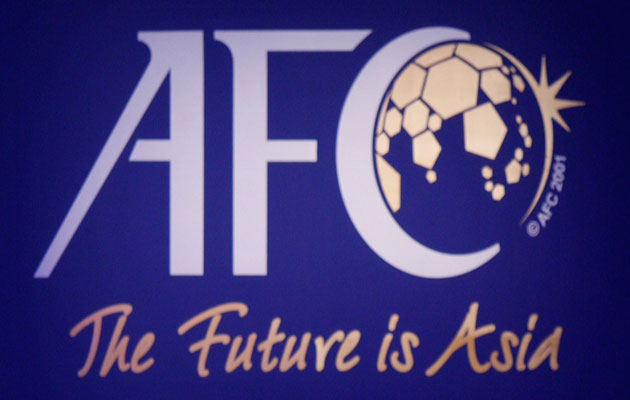Current president is Sheikh Salman bin Ebrahim al Khalifa, head of the Bahrain federation. He swept to power 17 months ago to complete the term abandoned by the disgraced Mohamed bin Hammam and must stand for re-election already next May.
The newly-elected AFC president – Sheikh Salman or another – will also take on the status of Asian vice-president of FIFA after the Bahraini’s latest land grab at an extraordinary AFC Congress in Sao Paulo in June.
Beyond the vice-presidency, currently held by reformist Prince Ali bin Hussein of Jordan, the AFC commands three other elected seats on the executive committee of the world federation.
Present incumbents are Thailand’s Worawi Makudi, China’s Zhang Jilong and Sheikh Salman himself (Australian Moya Dodd is also on the FIFA exco as a woman member co-opted by Congress).
Jilong owes his place only to a late recall after FIFA’s suspension of Sri Lanka’s Vernon Manilal Fernando for ‘ethics breaches’.
Rivals are starting to circle.
An outstanding candidate is Kohzo Tashima, vice-president and executive general secretary of the Japan Football Association.
He might have stood against Salman for the AFC presidency in 2013 in different electoral circumstances. Tashima has powerful support from Japanese sponsors of the AFC Champions League.
The prospect of a Japanese candidate may also prompt a bid for a return by South Korea’s Chung Mong-joon. He is a scion of the multi-million family business empire which includes the Hyundai corporation, one of FIFA’s main World Cup sponsors.
Chung led the aggressively successful South Korea 2002 World Cup bid which concluded with the historic co-hosting alongside the furiously resentful Japanese. He used that platform to become FIFA’s Asian vice-president until his overthrow by Prince Ali in 2011.
In last year’s AFC/FIFA elections an unsuccessful candidate was Hassan Al-Thawadi, secretary-general of Qatar’s 2022 World Cup organising operation. He is not expected to run again, having enough on his plate in preparing for the most controversial finals in the history of the competition.
It would appear illogical for Qatar not be represented on the FIFA executive committee. That argument could empower QFA vice-president Saud Abdulaziz Al Mohannadi. Such a candidacy is being encouraged, according to local reports, by QFA president Sheikh Hamad bin Khalifa bin Ahmed Al Thani.
Yet another possible candidate who has been testing the water is Prince Abdullah Sultan Ahmad Shah, president of the Football Association of Malaysia.
Then two heavyweights must weigh up all their options.
One is Prince Ali who, as it stands, is on his way out of FIFA. Should he stand for the AFC presidency against Salman who ‘grabbed’ his seat? Should he stand for an ‘ordinary’ AFC slot on the FIFA exco? Or should he even consider running against Sepp Blatter for the FIFA presidency?
The other heavyweight centrally involved is Sheikh Ahmad Al-Fahad Al-Ahmed Al-Sabah.
The Kuwaiti holds no formal role within either FIFA or the AFC but wields enormous power through his patronage as president of both the Association of National Olympic Committees and of the Olympic Council of Asia.
Sheikh Ahmad ran a ruthlessly effective campaign to land the ANOC leadership in 2012; he was a major cheerleader behind Thomas Bach’s accession to the IOC presidency in 2013; and he pulled all the strings at his disposal to place Salman in the top job at the AFC.
However, he may be pondering where to cast his support in future. Judicial events in faraway London could be a factor.
Prince Nasser bin Hamad al-Khalifa, the commander of Bahrain’s Royal Guard and head of its National Olympic Committee, has lost a court battle to maintain immunity over possible action concerning whether he was involved in the torture of political detainees, possibly including three former members of the Bahrain national team.
This spills over into the AFC election domain because Sheikh Salman is not only a relative of Prince Nasser but, according to the state-run Bahrain News Agency, is his No2 at both the Olympic committee and the Supreme Council for Youth and Sport.
This must give Sheikh Ahmad pause for thought. Continued support for his protégés from Bahrain appears increasingly questionable when balanced against the human rights demands newly-enshrined by Bach’s IOC in both the Olympic Charter and host city contracts.
Shifting sands, indeed.







